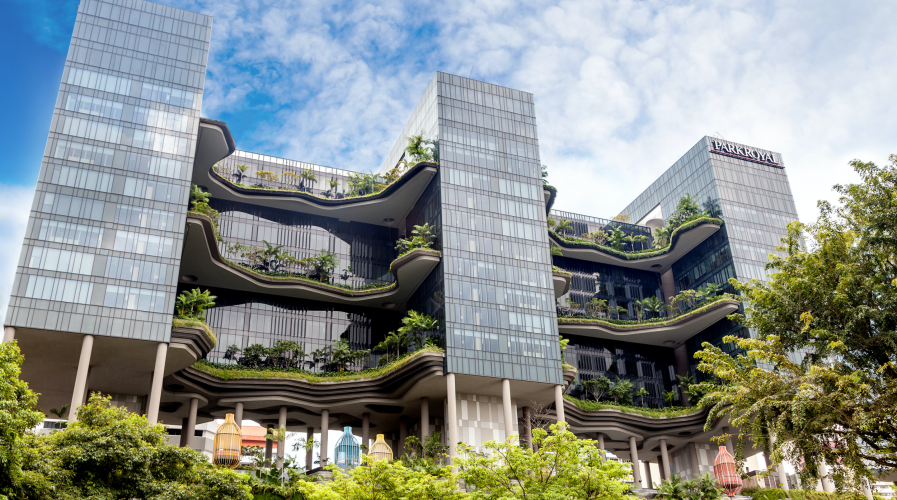
PARKROYAL Hotel in the financial hub of Singapore. Source: Shutterstock
Hotel industry’s rebound could hinge on contactless check-in tech
The hospitality sector has been devastated by the impact of the coronavirus. Quite simply, with hardly anyone able to travel – internally, let alone internationally – demand has all but dried up.
That economic damage is showing in the numbers. In Singapore, the city-state’s tourist board revealed that the hotel’s average occupancy crashed by 37.5 percent year-on-year since February 2019. The situation looks especially grim for these businesses.
At the same time, the hospitality sector is an adaptable one that is opportunistic, reactive to trends, and ready to invest in the latest technology readily available.
Before the pandemic hit, the global hotel industry was enjoying a decade-long run of growth, but that success was hard-fought, with hotel chains aggressively adopting technology such as data analytics to drive personalization and CX in the face of unprecedented competition and the rise of platforms like Airbnb.
Technology – even things like voice assistants – have become woven into the fabric of hotels who want to offer customers a seamless and subtly novel experience. But technology may also now play a vital role in winning back custom as social distancing measures retract.
Dr. Anil Kaul, Co-founder, and CEO of Absolutdata, told our sister site TechHQ that the key to success in hospitality is to “be able to react quickly,” and that approach certainly holds water in these seemingly dire circumstances.
Contactless check-ins
When the flow of guests begins to trickle in once again, establishments can win favor by offering convenient experiences that are also reassuringly safe. As such, contactless technology – which can significantly limit transmission of viruses – will be a focal point of investment.
Contactless customer service technologies will not only ensure guests feel less anxious about transmission risks following months of concern, but this new norm will enable hotels to work with smaller core teams.
Hotels are “betting on automation and artificial intelligence” to reduce operating costs, while self check-in kiosks, mobile check-in, chatbots, direct booking applications, contactless payments, and even digital in-room dining services could become commonplace in the year ahead, according to a report by Singapore Business Review.
Hotels are also following suit of airports like Shanghai by employing facial recognition, providing a fast, seamless and contact-free check-in experience for guests. In Singapore, Ascott Orchard, Swissotel the Stamford, and Grand Park City Hall are piloting this approach under the E-Visitor Authentication System.
Launched by the Singapore Tourism Board and the Singapore Hotel Association, the facial recognition technology could reduce the check-in process by up to 70 percent, and carries obvious benefits in fewer documents changing hands and less prolonged face-to-face interaction between staff and guests.
For a physical industry that is built on human interaction, it would seem a full recovery would be well off in the distance for the hospitality sector. But it has proven that it’s built by entrepreneurs who are competitive, resilient and smart enough to thrive in any circumstances, while creating experiences that continue to delight guests.
While the current market situation is unprecedented and hard for anyone to forecast, as cited by SBR, a report by JLL is expecting the same level of recovery that hotels have shown after the SARS dilemma quietened down.
“Hotel trade performance recovered only five months after the SARS outbreak.”
READ MORE
- The criticality of endpoint management in cybersecurity and operations
- Ethical AI: The renewed importance of safeguarding data and customer privacy in Generative AI applications
- How Japan balances AI-driven opportunities with cybersecurity needs
- Deploying SASE: Benchmarking your approach
- Insurance everywhere all at once: the digital transformation of the APAC insurance industry


